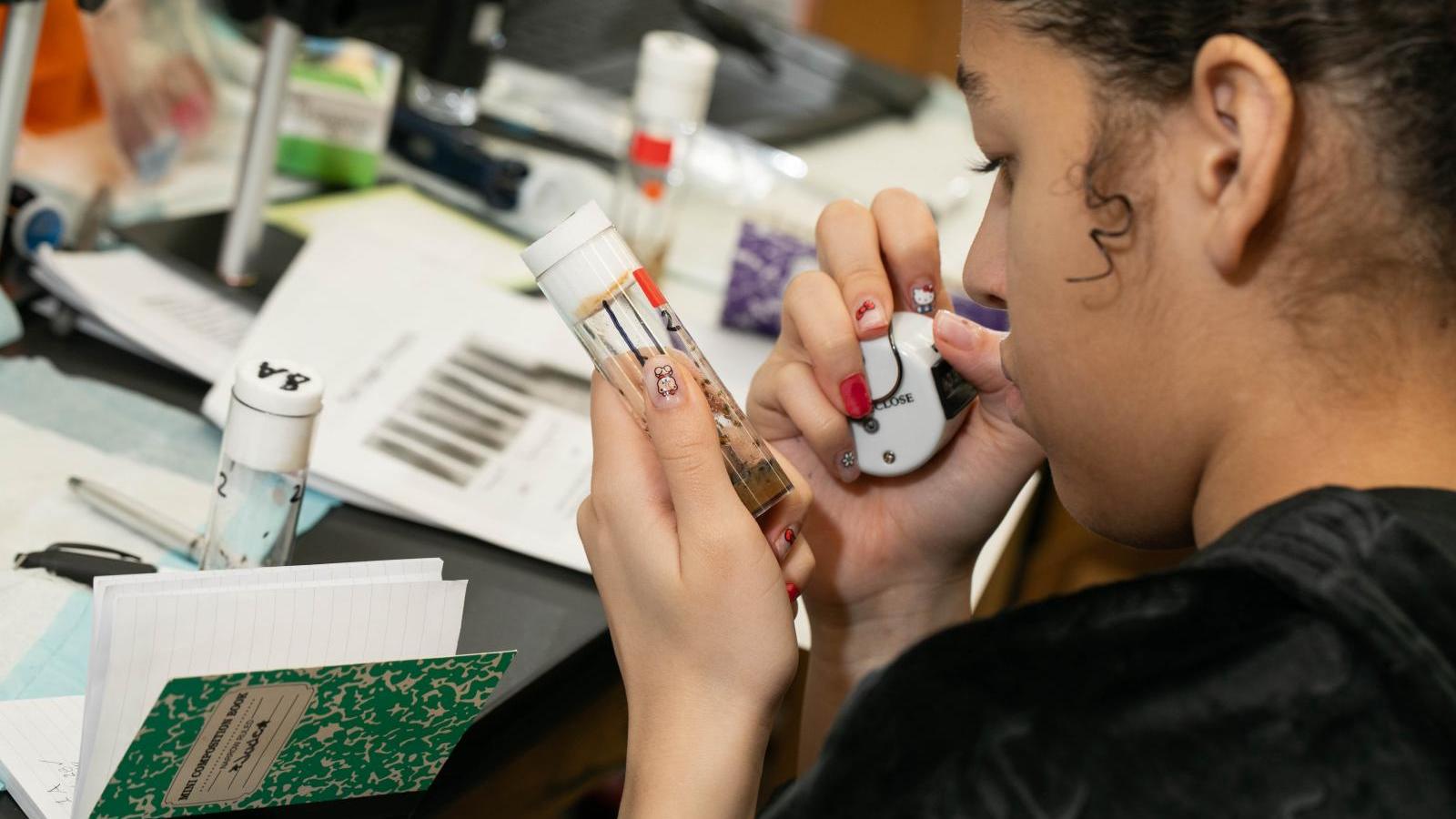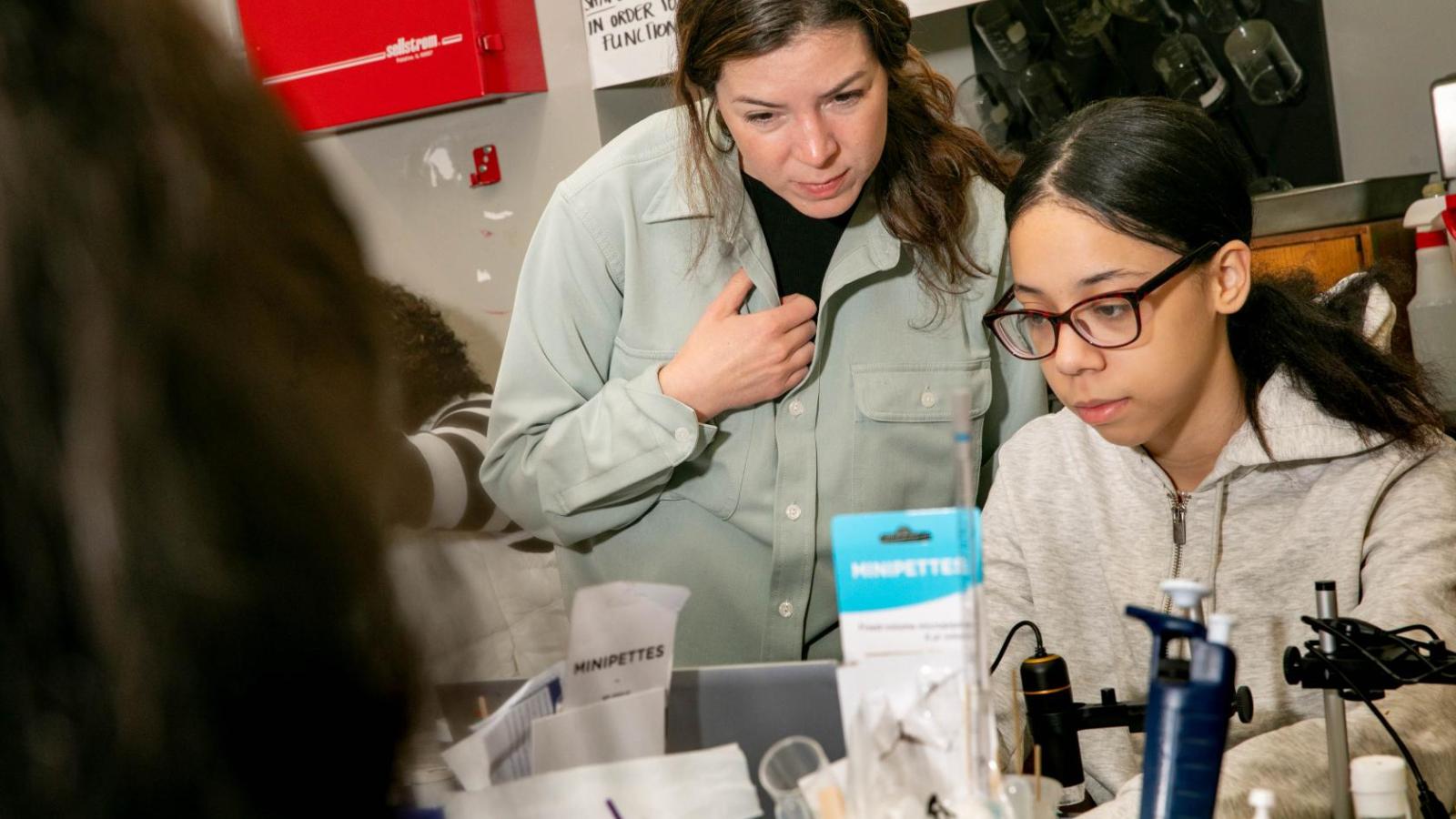eClose: Shaping Future Scientists
Our goal is to increase and improve pathways for talented students from the neighborhoods around the medical center and engage students who may be interested in science and medicine at Columbia with our trainees, researchers and faculty members.
Sandra Ryeom, PhD , Associate Professor of Surgical Sciences, Vagelos College of Physicians and Surgeons; Associate Director, Herbert Irving Comprehensive Cancer Center (HICCC); Member, Tumor Biology and Microenvironment Program, HICCC
Twenty-eight middle and high school students from Washington Heights Expeditionary Learning School (WHEELS) and Bea Fuller Rodgers School spent the past spring and winter breaks studying the impact of diet and nutrition on tumor growth, using Drosophila, better known as the common fruit fly, as their model organism.
The eClose program, organized by the Herbert Irving Comprehensive Cancer Center (HICCC), provides students in Columbia University Irving Medical Center’s neighborhoods with hands-on lab experiments to study cancer. This five-day program engages young students in hands-on experiments, providing direct exposure to an advanced level of research, science and medicine.
Community Outreach and Engagement project coordinator Milagro Peters reflects positively on her experience working closely with the students throughout the program. “There was a strong sense of community among both the students and the teachers,” she stated. “The teachers were also highly involved, going the extra mile to reinforce various concepts and ensure that everyone was on the same page.” Milagro also describes the students’ willingness to work together and help each other during the experiments as a “truly enjoyable experience.”
In-person classroom experiments were led through virtual lectures with an educational organization called eClose Institute, together with Columbia faculty, students and staff. Each student worked with a fruit fly science kit provided to them at the start of the week that included microscopes, pipettes, mini-balances and other equipment necessary for experiments. The students learned critical lab skills, hypothesis generation, data collection and analysis.
Nathalie Nova, a 9th grader from WHEELS, spoke about her experience with eClose. “One thing I liked from the program was learning how to do different experiments and researching about plants and genes to find out how they relate to each other,” she mentioned. “They also provided a lot of help and support which I really appreciated.”
Jade Bragg, also a WHEELS 9th grader, wants to fulfill her desire to help others by working in the medical field when she gets older. “I’m so glad I participated as I learned a lot about the BRCA2 gene and cancer.” She highlights the opportunity to test out the microscope as her favorite part of the program. “It was fun to see the flies in a bigger perspective and identify fly genders.”
The eClose program aims to promote and support local middle- and high school students interested in science and medicine but who may not have the opportunity or resources to gain hands-on scientific research or lab experience. Many of the students ended the program engaged and energized to learn more about science, cancer research, and medicine. Following the program, the participating students will showcase their discoveries and present the findings from their experiments during an upcoming poster session at the HICCC.



